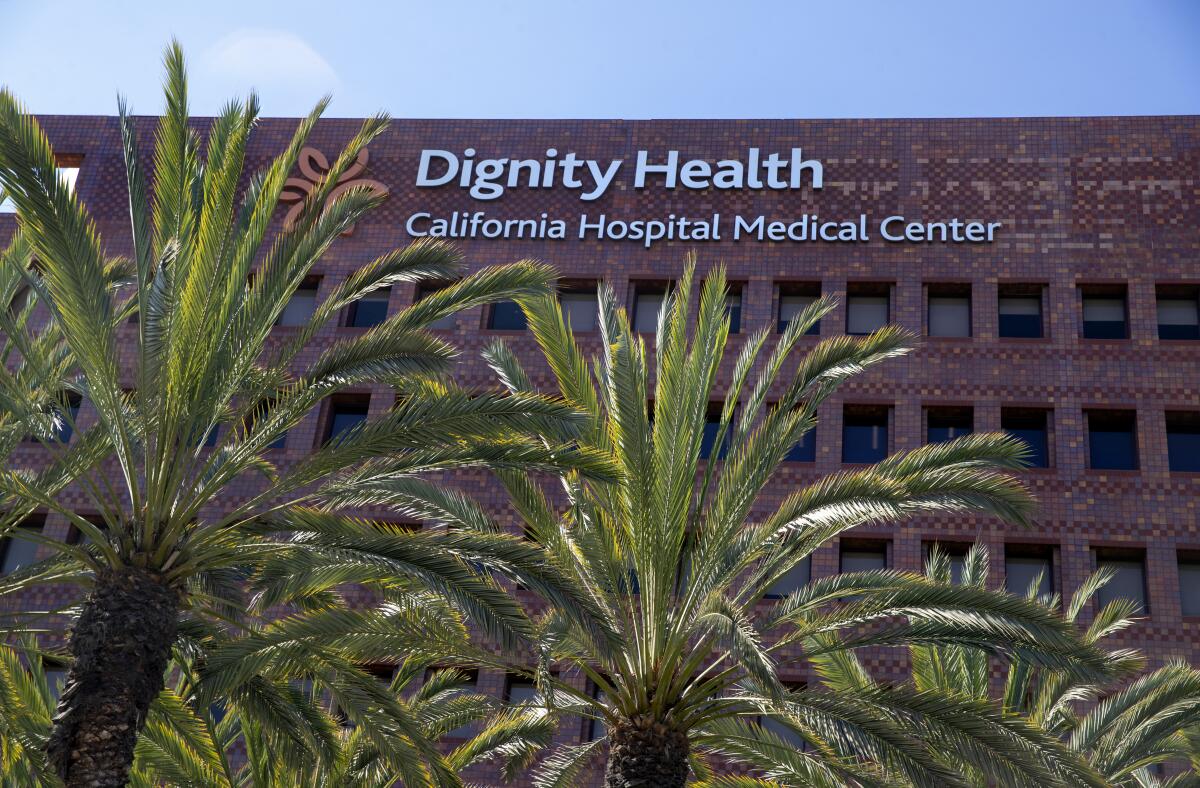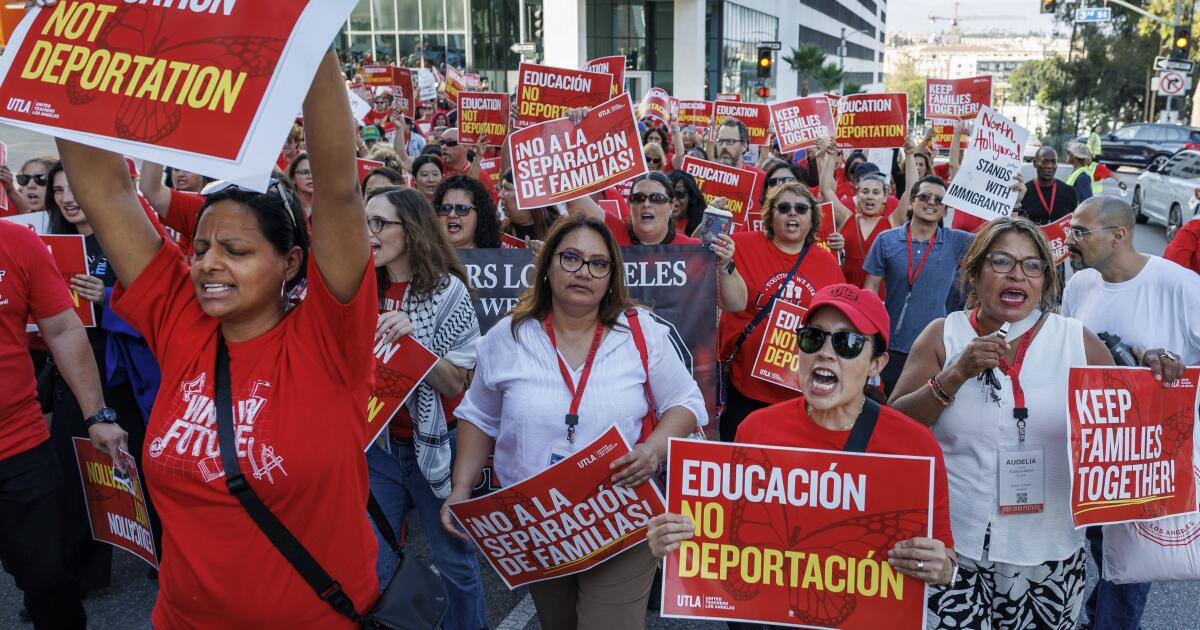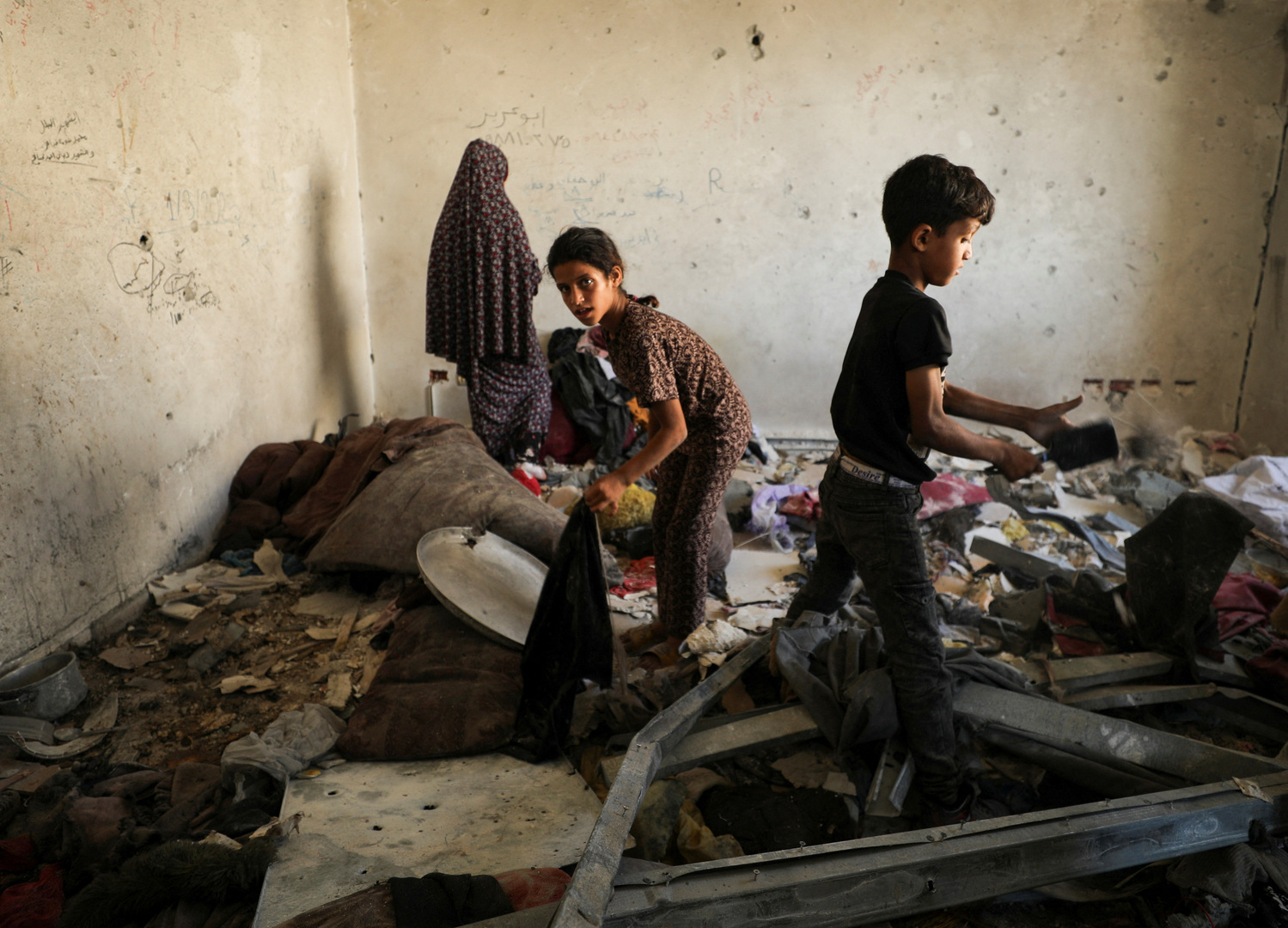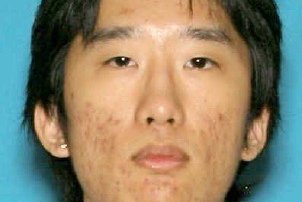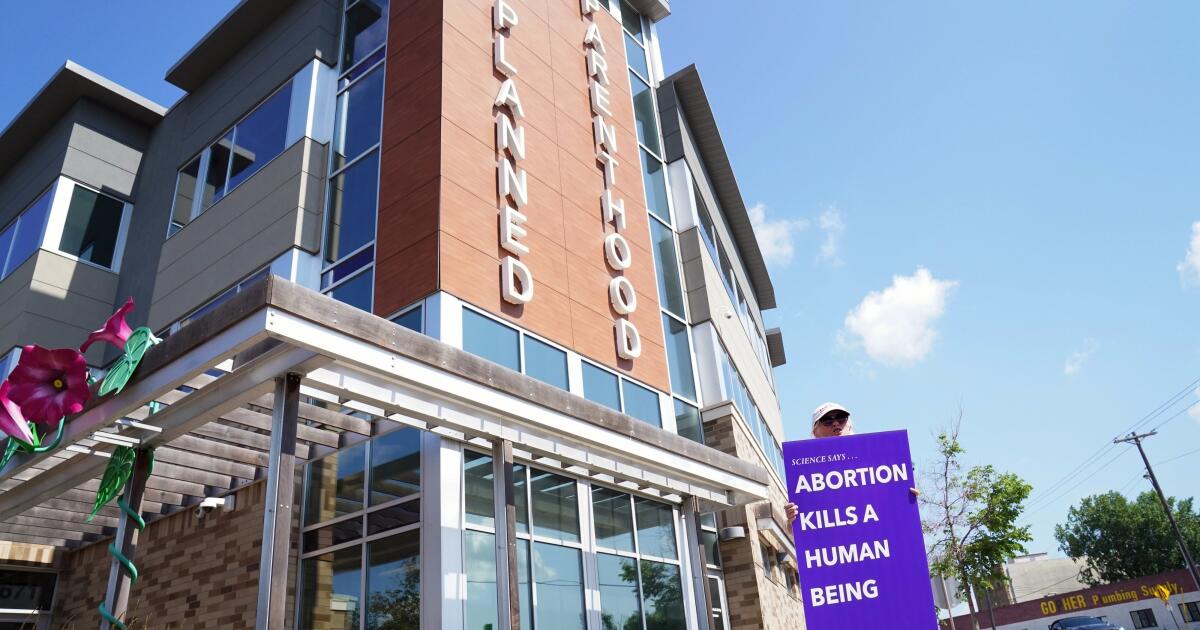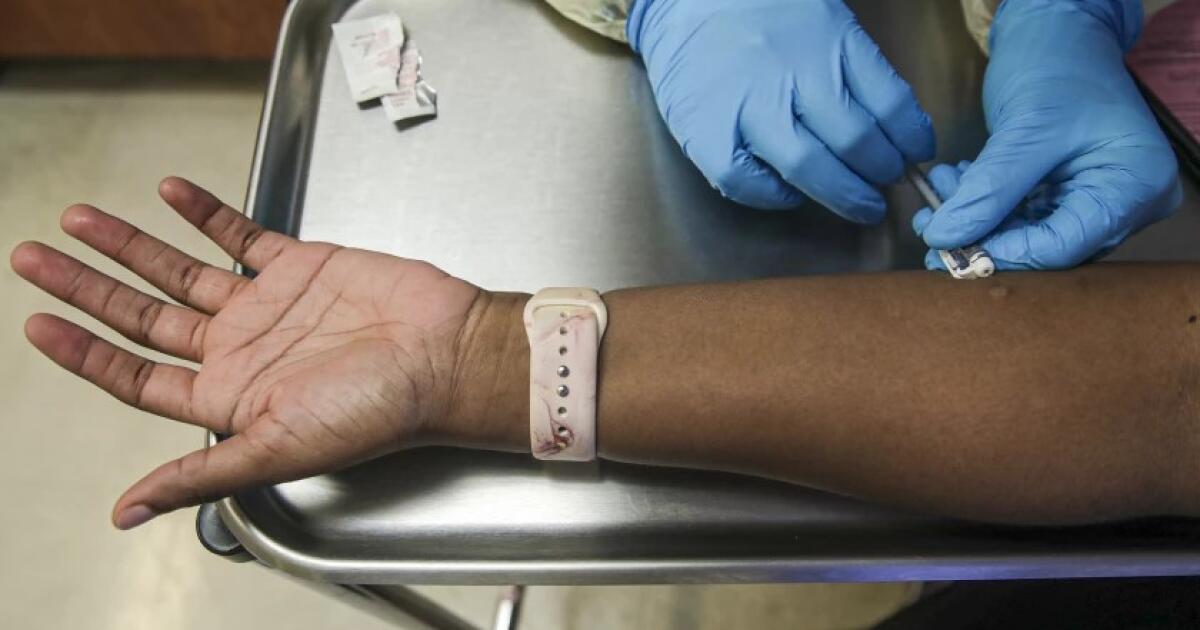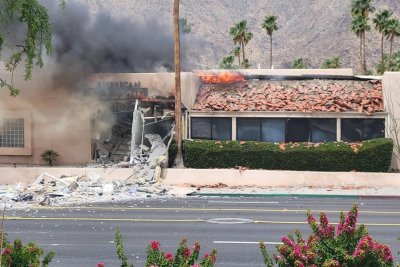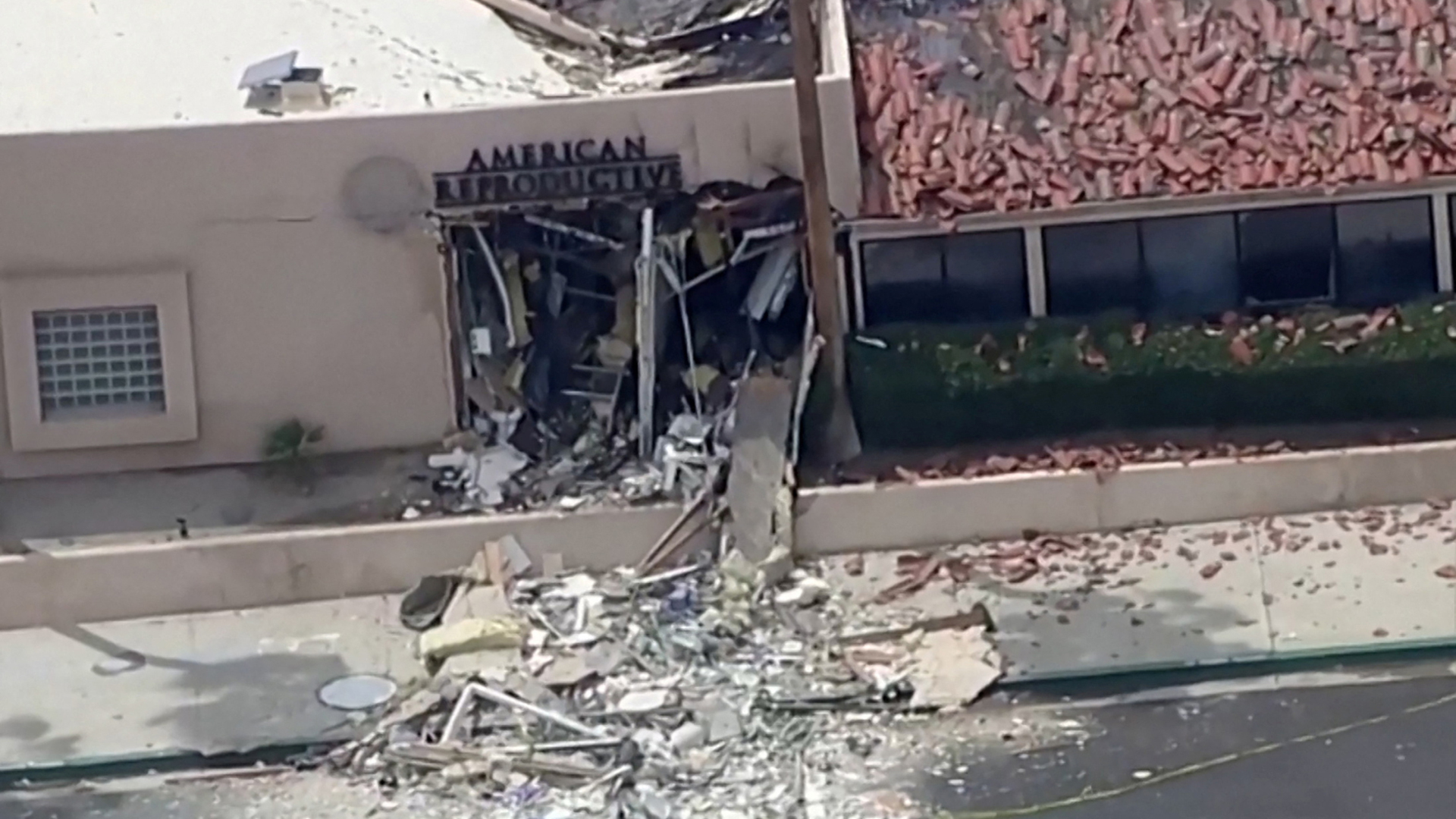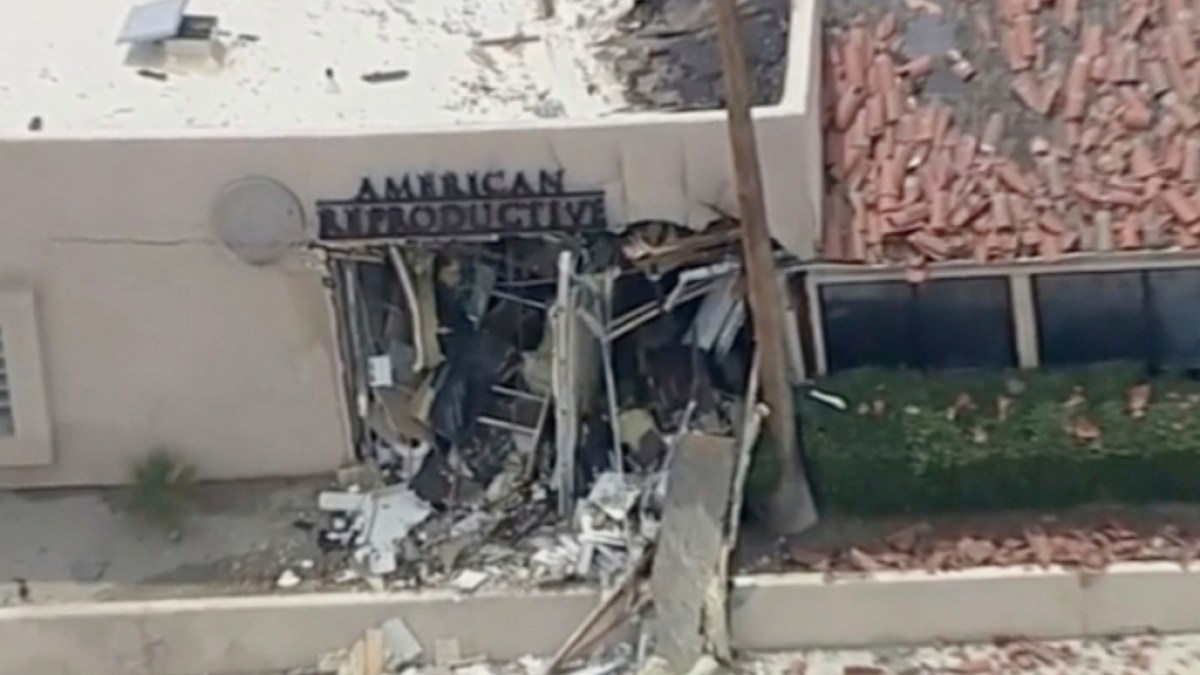Immigration agents are raiding California hospitals and clinics. Can a new state law prevent that?
In recent months, federal agents camped out in the lobby of a Southern California hospital, guarded detained patients — sometimes shackled — in hospital rooms, and chased an immigrant landscaper into a surgical center.
U.S. Immigration and Customs Enforcement agents also have shown up at community clinics. Health providers say officers tried to enter a parking lot hosting a mobile clinic, waved a machine gun in the faces of clinicians serving the homeless, and hauled a passerby into an unmarked car outside a community health center.
In response to such immigration enforcement activity in and around clinics and hospitals, Gov. Gavin Newsom last month signed SB 81, which prohibits medical establishments from allowing federal agents without a valid search warrant or court order into private areas, including places where patients receive treatment or discuss health matters.
But while the bill received broad support from medical groups, health care workers and immigrant rights advocates, legal experts say California can’t stop federal authorities from carrying out duties in public places like hospital lobbies and general waiting areas, parking lots and surrounding neighborhoods — places where recent ICE activities sparked outrage and fear. Previous federal restrictions on immigration enforcement in or near sensitive areas, including health care establishments, were rescinded by the Trump administration in January.
“The issue that states encounter is the supremacy clause,” said Sophia Genovese, a supervising attorney and clinical teaching fellow at Georgetown Law. She said the federal government has the right to conduct enforcement activities, and there are limits to what the state can do to stop them.
California’s law designates a patient’s immigration status and birthplace as protected information, which like medical records cannot be disclosed to law enforcement without a warrant or court order. And it requires health care facilities to have clear procedures for handling requests from immigration authorities, including training staff to immediately notify a designated administrator or legal counsel if agents ask to enter a private area or review patient records.
Several other Democratic-led states also have taken up legislation to protect patients at hospitals and health centers. In May, Colorado Gov. Jared Polis signed the Protect Civil Rights Immigration Status bill, which penalizes hospitals for unauthorized sharing of information about people in the country illegally and bars ICE agents from entering private areas of health care facilities without a judicial warrant. In Maryland, a law requiring the attorney general to create guidance on keeping ICE out of health care facilities went into effect in June. New Mexico instituted new patient data protections, and Rhode Island prohibited health care facilities from asking patients about their immigration status.
Republican-led states have aligned with federal efforts to prevent health care spending on immigrants without legal authorization. Such immigrants are not eligible for comprehensive Medicaid coverage, but states do bill the federal government for emergency care in certain cases. Under a law that took effect in 2023, Florida requires hospitals that accept Medicaid to ask about a patient’s legal status. In Texas, hospitals now have to report how much they spend on care for immigrants without legal authorization.
“Texans should not have to shoulder the burden of financially supporting medical care for illegal immigrants,” Gov. Greg Abbott said in issuing his executive order last year.
California’s efforts to rein in federal enforcement come as the state, where more than a quarter of residents are foreign-born, has become a target of President Trump’s immigration crackdown. Newsom signed SB 81 as part of a bill package prohibiting immigration agents from entering schools without a warrant, requiring law enforcement officers to identify themselves, and banning officers from wearing masks. SB 81 was passed on a party-line vote with no formal opposition.
“We’re not North Korea,” Newsom said during a September bill-signing ceremony. “We’re pushing back against these authoritarian tendencies and actions of this administration.”
Some supporters of the bill and legal experts said California’s law can prevent ICE from violating existing patient privacy rights. Those include the Fourth Amendment, which prohibits searches without a warrant in places where people have a reasonable expectation of privacy. Valid warrants must be issued by a court and signed by a judge. But ICE agents frequently use administrative warrants to try to gain access to private areas they don’t have the authority to enter, Genovese said.
“People don’t always understand the difference between an administrative warrant, which is a meaningless piece of paper, versus a judicial warrant that is enforceable,” Genovese said. Judicial warrants are rarely issued in immigration cases, she added.
The Department of Homeland Security said it won’t abide by California’s mask ban or identification requirements for law enforcement officers, slamming them as unconstitutional. The department did not respond to a request for comment on the state’s new rules for health care facilities, which went into immediate effect.
Tanya Broder, a senior counsel with the National Immigration Law Center, said immigration arrests at health care facilities appear to be relatively rare. But the federal decision to rescind protections around sensitive areas, she said, “has generated fear and uncertainty across the country.” Many of the most high-profile news reports of immigration agents at health care facilities have been in California, largely involving detained patients brought in for care.
The California Nurses Assn., the state’s largest nurses union, was a co-sponsor of the bill and raised concerns about the treatment of Milagro Solis-Portillo, a 36-year-old Salvadoran woman who was under round-the-clock ICE surveillance at Glendale Memorial Hospital over the summer.
Nurses say immigration agents brought a patient to California Hospital Medical Center in Los Angeles and stayed in the patient’s room for almost a week.
(Mel Melcon/Los Angeles Times)
Union leaders also condemned the presence of agents at California Hospital Medical Center south of downtown Los Angeles. According to Anne Caputo-Pearl, a labor and delivery nurse and the chief union representative at the hospital, agents brought in a patient on Oct. 21 and remained in the patient’s room for almost a week. The Los Angeles Times reported that a TikTok streamer, Carlitos Ricardo Parias, was taken to the hospital that day after he was wounded during an immigration enforcement operation in South Los Angeles.
The presence of ICE was intimidating for nurses and patients, Caputo-Pearl said, and prompted visitor restrictions at the hospital. “We want better clarification,” she said. “Why is it that these agents are allowed to be in the room?”
Hospital and clinic representatives, however, said they already are following the law’s requirements, which largely reinforce extensive guidance put out by state Attorney General Rob Bonta in December.
Community clinics throughout Los Angeles County, which serve more than 2 million patients a year, including a large portion of immigrants, have been implementing the attorney general’s guidelines for months, said Louise McCarthy, president and chief executive of the Community Clinic Assn. of Los Angeles County. She said the law should help ensure uniform standards across health facilities that clinics refer out to and reassure patients that procedures are in place to protect them.
Still, it can’t prevent immigration raids from happening in the broader community, which have made some patients and even health workers afraid to venture outside, McCarthy said. Some incidents have occurred near clinics, including an arrest of a passerby outside a clinic in East Los Angeles, which a security guard caught on video, she said.
“We’ve had clinic staff say, ‘Is it safe for me to go out?’” she said.
At St. John’s Community Health, a network of 24 community health centers and five mobile clinics in South Los Angeles and the Inland Empire, chief executive Jim Mangia agreed the new law can’t prevent all immigration enforcement activity, but said it gives clinics a tool to push back with if agents show up, something his staff has had to do.
Mangia said St. John’s staff had two encounters with immigration agents over the summer. In one, he said, staff stopped armed officers from entering a gated parking lot at a drug and alcohol recovery center where doctors and nurses were seeing patients at a mobile health clinic.
Another occurred in July, when immigration agents descended upon MacArthur Park on horses and in armored vehicles, in a show of force by the Trump administration. Mangia said masked officers in full tactical gear surrounded a street medicine tent where St. John’s providers were tending to homeless patients, screamed at staff to get out and pointed a gun at them. The providers were so shaken by the episode, Mangia said, that he had to bring in mental health professionals to help them feel safe going back out on the street.
A DHS spokesperson told CalMatters that in the rare instance when agents enter certain sensitive locations, officers would need “secondary supervisor approval.”
Since then, St. John’s doubled down on providing support and training to staff and offered patients afraid to go out the option of home medical visits and grocery deliveries. Patient fears and ICE activity have decreased since the summer, Mangia said, but with DHS planning to hire an additional 10,000 ICE agents, he doubts that will last.
KFF Health News is a national newsroom that produces in-depth journalism about health issues and is one of the core operating programs at KFF — the independent source for health policy research, polling, and journalism.
